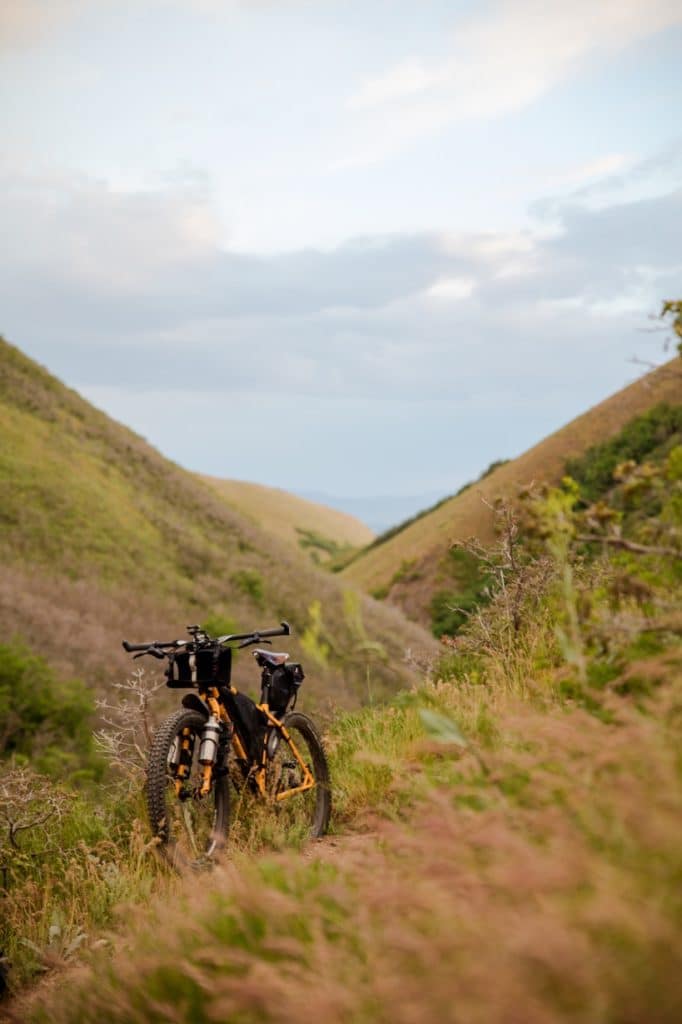Strange and interesting things are afoot in the human-powered outdoor recreation community, and if you’ve been paying attention to issues surrounding the use of wilderness areas lately, what follows here might not come as a surprise.
What has emerged is a growing division among outdoor enthusiasts as to whether or not mountain bikes should be allowed in designated wilderness areas. The question, which has turned controversial as of late, fosters fears that mountain bike organizations are beginning to align themselves with companies, organizations and politicians insisting on making their way into wilderness areas for resource exploration.

Photo by Patrick Hendry | Sourced from Unsplash
But first, a brief description of how the U.S government defines wilderness:
“The Wilderness Act, signed into law in 1964, created the National Wilderness Preservation System and recognized wilderness as “an area where the earth and its community of life are untrammeled by man, where man himself is a visitor who does not remain.” The Act further defined wilderness as “an area of undeveloped federal land retaining its primeval character and influence without permanent improvements or human habitation, which is protected and managed so as to preserve its natural conditions.“
That description also specifies that “mechanical transport” cannot be used to travel within the area. And by any definition, bicycles fall into the category of “mechanical transport.”
The International Mountain Bicycling Association (IMBA) has worked for years to keep trails open. However, at times that means not allowing a Wilderness designation to occur in certain areas. The organization isn’t looking to remove designation where it already exists. It claims the its members just want to maintain the number of trails that are accessible to mountain bikers now.
More Than Hikers vs Bikers
People on both sides of the issue want to reduce the debate to one that pits hikers versus bikers. But it’s just not that cut and dry, folks.
One group of bikers who disagree with IMBA’s stance have formed the Sustainable Trails Coalition, an organization that would like to see bikes permitted in wilderness areas.
And let’s be honest. It would be absolutely amazing to be able to ride in some of these wilderness areas. But if we open these pristine acres to biking, what other doors might be pried open? What price might we end up paying in the long run for the chance to ride wild?
Further, the Sustainable Trail Coalition has gone so far as to align itself with some of the biggest enemies of the environment. These allies are congressman and senators with the worst conservation track records around.
Last December, the U.S. House Natural Resources Committee passed H.R. 1349 — a bill to amend the Wilderness Act to ensure that the use of bicycles, wheelchairs, strollers, and game carts is not prohibited in Wilderness Areas (a.k.a. The Mountain Bikes in Wilderness Bill). To many, this bill appears to be the beginning of a movement to chip away the true definition of wilderness as set by the Wilderness Act of 1964.
So, the question becomes this:
- What are we willing to give up to extend our — us Wilderness advocates — “play spaces?”
- Are we willing to align ourselves with people and organizations with whom we normally would not associate?
- Do we allow our voices to be heard in the same breath as drilling, exploring resource extraction, or logging?
- Where do we draw the line?
- Do we advocate “free range” biking everywhere?
- Or should we continue to insist on outdoor recreation handled with respect, restraint and responsibility?
Regardless of your opinion, we encourage everyone to brush up on their Leave No Trace skills, which play an important role in the NCOAE Curriculum.
– – – – – – – – – – – – – – –
 About the Author: Stephen Mullaney is the staff development director at The National Center for Outdoor & Adventure Education (NCOAE) in Wilmington, N.C., where he is responsible for the training and education of NCOAE’s field instructors. He is a member of the North Carolina Association of Educators (NCAE) and has taught within the Durham, N.C., public school system. Stephen received his undergraduate degree in English from Framingham State University, and his Master’s Degree in Education from North Carolina Central University.
About the Author: Stephen Mullaney is the staff development director at The National Center for Outdoor & Adventure Education (NCOAE) in Wilmington, N.C., where he is responsible for the training and education of NCOAE’s field instructors. He is a member of the North Carolina Association of Educators (NCAE) and has taught within the Durham, N.C., public school system. Stephen received his undergraduate degree in English from Framingham State University, and his Master’s Degree in Education from North Carolina Central University.
TALK TO US
Have any further questions about our courses, what you’ll learn, or what else to expect? Contact us, we’re here to help!
Leave a comment